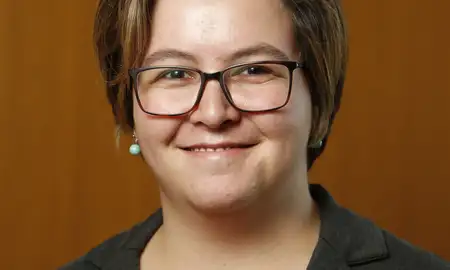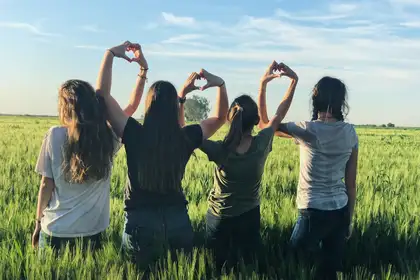
WellMates, a programme developed by Lincoln University to reduce the lives lost by suicide in rural communities, has been introduced to first year agriculture students at Massey this semester.
Taking the form of one two-hour student-led conversation, the programme seeks to give agricultural students the knowledge and skills needed to look after their mental wellbeing, as well as that of their mates. Developed with input from Farmstrong, the course materials reflect the experiences of people in rural New Zealand.
The programme piqued the interest of Dr Nicky Stanley-Clarke, Senior Lecturer at Massey’s School of Social Work, who saw real potential in the programme and a need for it to be offered to Massey students.
“We know that the rural sector have issues around mental health and wellbeing, and that it is often the younger workers who struggle the most. They often hold a ‘tough guy attitude’ and can be reluctant to engage. Our agricultural students are generally from the rural community or will end up working in those communities, which are often in isolated locations,” Dr Stanley-Clarke says.
“Our students are dealing with the stress of study anyway, so if we can support them to be resourced in terms of managing and looking after their own wellbeing, then hopefully we can help them develop some resilience and skills to support their own wellbeing. We also want them to be able to recognise when other people’s mental health may be suffering, and what to do about it.”
The WellMates pilot has been funded through the Massey – Lincoln and Agricultural Industry Trust Capability Development and Research Fund. As part of the pilot, Dr Stanley-Clarke is working with Lincoln researchers Dr Louise Winder and Dr Jorie Knook to test the efficacy of the programme.
“We want this research to ensure that the programme is doing what it set out to do. We are trying to find out if WellMates is contributing to building resilience and actually supporting students’ mental wellbeing,” Dr Stanley-Clarke explains.
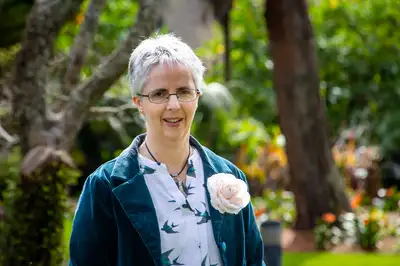
Dr Nicky Stanley-Clarke
The success of the programme is being tested by two methods.
The researchers have gathered control group data from agricultural students at both Lincoln and Massey who aren’t participating in the programme, as well as from a test group who are participating in WellMates. Each person completed a survey about what they know about mental health and how they feel currently by answering the World Health Organisation’s five wellbeing questions. They were also asked about their knowledge of some of the tools that they have discussed as part of the programme. They are then required to answer the same questions once they have completed the WellMates session.
“What we're trying to measure is whether the programme has changed their knowledge and increased their confidence in knowing about mental health and wellbeing,” Dr Stanley-Clarke explains.
In addition to this, they’re interviewing participants to find out how WellMates could be improved.
So far, initial data out of Lincoln where the programme has been delivered to 168 Diploma of Agriculture students over two years, shows that there have been improved outcomes for people’s knowledge of mental health.
Interviews Dr Stanley-Clarke has conducted with participants indicate that they have found it useful to reinforce their existing knowledge about mental health, as well as learning new skills. They particularly value learning about how to help others.
“Students report that they get information while at high school about how to look after their own mental health, but they don’t get a lot of material on how to look after others. Recognising when others are struggling and knowing how to start conversations and support them is vital.”
The pilot at Massey was delivered by Lincoln students who have been trained to facilitate WellMates to ensure consistency for measuring the success of the programme. Feedback from students has indicated that they like that it is delivered by their peers, as the student facilitators turn it into a conversation, rather than a lecture.
This semester WellMates was run as an optional tutorial as part of the 100-level course Introduction to Animal Production in New Zealand.
“The initial indications of the data analysis is that the students we’ve interviewed see a real need for this education. We believe WellMates has a place at Massey, we just need to think about how it will work going forward and how we adapt it for distance students.”
More news
Opinion: The complexities of mental health and the role of nurses
Each year around one in five New Zealanders experiences mental illness or significant mental distress, and between 50 and 80 per cent of New Zealanders will experience mental distress or addiction challenges, or both, in their lifetime. The role that mental health nurses play in caring for these people should not be overlooked.

Strengthening hauora in rural communities
For nurse practitioner intern Nicole Broodkoorn, Ngāpuhi, her nursing journey has always been a way to lead her back home to make a difference in her community.
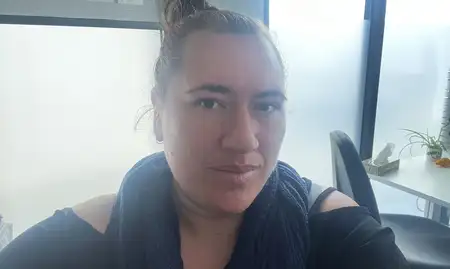
Work placement key to confidence for budding mental health worker
A work placement has given third year Bachelor of Health Science student Ehlana Grigg the chance to ease into the working world of mental health before she graduates.
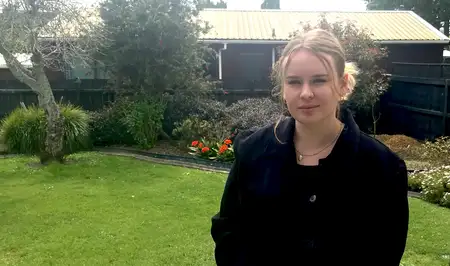
Clinical psychologist aims to understand Rainbow folks’ high rates of mental health concerns
Senior lecturer in clinical psychology Dr Ilana Seager van Dyk’s ultimate goal is to better understand the vast mental health disparities experienced by LGBTQ+ youth, and to improve evidence-based clinical care for these youth and their families.
